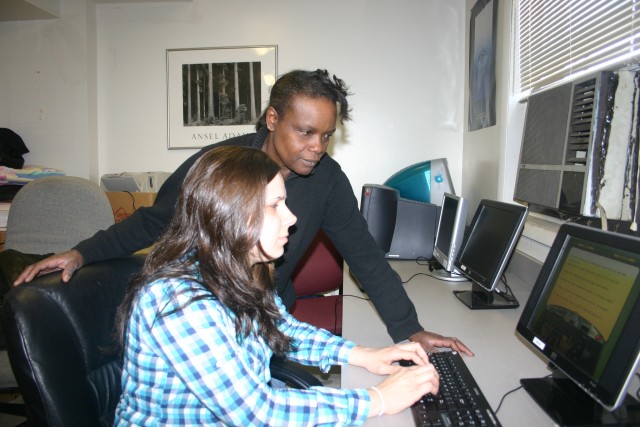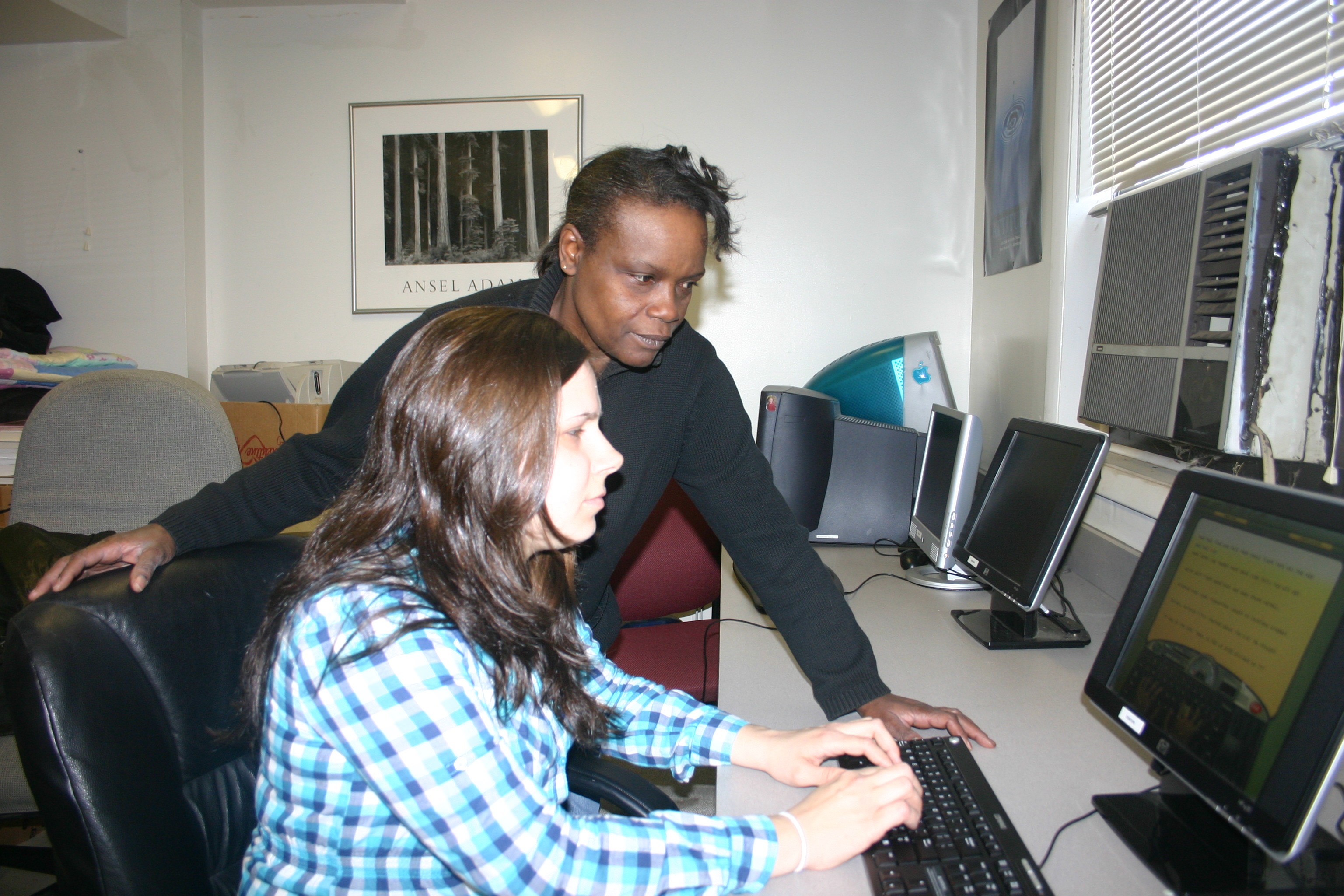Destiny Dugent works part time as a cashier at the Dollar Tree in Odenton. She aspires to become a certified medical assistant, but doesn't qualify for a vocational training program because she does not have a high school diploma.
"If I had my GED (General Equivalency Diploma) I wouldn't have to be a cashier for the rest of my life," said Dugent, the mother of five children and a guest at Sarah's House, the county's transitional housing program on Fort Meade for homeless families. "I want to better myself."
Thanks to a $20,254 grant from the Community Foundation of Anne Arundel County, Dugent can now enroll in new online pre-GED and GED classes at the housing program. CFAAC is an independent, tax-exempt charity created for and by the people of Anne Arundel County to encourage philanthropy and build community.
Sarah's House is one of five county nonprofit organizations awarded a Ladders To Success grant from CFAAC in January. The grant is aimed specifically at providing long-term economic sustainability opportunities for disadvantaged and vulnerable residents.
"We are thrilled," said Kathryn Philliben, executive director at Sarah's House.
The housing program received the grant last week and is now in the process of purchasing the computer software. The money will also help pay the salary of the instructor. Classes are scheduled to begin at the end of March.
Jane Hoffberger, program director at CFAAC, said Sarah's House was awarded the grant because the foundation's board of trustees was looking for nonprofits "that really impact the potential and lives of the clients they serve for the long term."
The grant's application guidelines required candidates to "demonstrate a clear and measurable connection to helping disadvantaged or vulnerable residents of Anne Arundel County achieve economic sustainability."
Philliben, who wrote the grant proposal, included the results of a survey of the earning power of Sarah's House guests with and without a high school diploma. The survey found that the average rate of pay for those without a high school diploma was $7.45 per hour, compared to $9.70 per hour for guests with a diploma.
"It was very clear to see there is a connection between the level of education of a guest and the rate of pay earned per hour," Philliben said.
In a random sample of 28 guests, 13 did not have a high school diploma or GED; eight were enrolled in a GED class off site; and seven had a high school diploma.
Online classes will allow guests to work at their own pace under the direction of the instructor. The two classes will be limited to 10 students each and offered in the program's computer lab.
Philliben, who has also worked as a college instructor and administrator, said education is the key to helping adults become self-sufficient and that providing pre-GED and GED classes on site for guests is critical.
"I realized that in order for our guests to be self-sufficient, they need skills to offer their employers so they can be employed at a rate that is higher than the minimum wage," Philliben said.
Dugent said she was enrolled in a GED class at the Glen Burnie Family Support Center last summer, but had to drop out due to a conflict with her work schedule.
Philliben said offering the classes on site will make it more convenient for guests to arrange their work schedules. Also, guests will not have to worry about transportation costs.
"I think it would be great," Dugent said of the classes. "There are a lot of mothers [here] who want to do things to better their lives."


Social Sharing